telesurenglish.net
Published 14 December 2020
“An extensive network of groups financed by the US government sends cash to Cuba to thousands of ‘democracy activists’, journalists and dissidents every year”—with that initial note, journalist Tracey Eaton, a specialist in Cuba related issues, focuses on the underlying reality of the subversive programs promoted by the United States on the island, some so secret that the recipients of the funds are never published. (See his article below.)
The explanation lies in two reasons: to protect those involved from alleged reprisals and to respect the Freedom of Information Act (FOIA), which prohibits the disclosure of strategies to “rescue Cuban democracy.”
A broader question, the answer to which, according to Eaton, he also does not know, is whether groups financed by the U.S. administration are channeling money to the San Isidro Movement (MSI).
While a November 24 State Department announcement offering up to $1 million for programs that promote “civil, political, religious and labor rights” does not mention the MSI—according to Eaton—most likely is that the US government is trying to act quickly before the end of the political and social tension that has been built up.
An analysis of the fabricated media insights is notoriously difficult, but Tracey Eaton brings us closer to the magnitude of the phenomenon through evidence shared below.
The following table shows a sample of groups that have received a total of $16,569,889 in grants from the United States Agency for International Development (USAID) since 2017. Although USAID reports funding for only five or six groups in a given year, about a dozen may still be operating under the previous year’s grants.
The total number of groups reaches 54, and based on a quick count of organizations that are the most visible, the groups include:
Agora Cuba Inc.
Arlenica, Art, Language and Research for Social Change
Cronos Civil Association
Diario de Cuba Association
Mexican Association for the United Nations Youth
Minga Peru Association
Bacardi Family Foundation
Global Campaign for Free Expression A19 B.C.
Canyon Communications LLC
Caribbean Tales Worldwide Distribution Inc.
Center for a Free Cuba
Center for International Private Enterprise (CIPE)
Center for Ibero-American Constitutional Studies
Christian Solidarity International
Clovek v tisni, o.p.s. (People in Need)
Cubalex
Cuban Democratic Directorate
Cuban Soul Foundation, Inc.
CubaNet News, Inc.
Digital News Association, Inc.
Echo Cuba/Americas Relief Team
Editorial Hypermedia Inc.
Foundation for Human Rights in Cuba, Inc.
Free Society Project Incorporated
Freedom House Inc.
Urban Poster Foundation
Public Space Foundation
Public Voice Foundation
Pro Bono Foundation
Global Rule of Law & Liberty Legal Defense Fund
Democracy Support Group
International Group for Corporate Social Responsibility in Cuba
Institute for War and Peace Reporting (IWPR)
Cuban Institute for the Freedom of Expression and Press
Institute of Communication and Development
Simone de Beauvoir Leadership Institute AC
Inter-American Institute of Human Rights
Political Institute for Liberty-Peru
Institute Press and Society
International Institute on Race, Equality and Human Rights
International Platform for Human Rights in Cuba
International Republican Institute
Factual Research and Innovation A.C.
Latin American and Caribbean Network for Democracy Inc.
Latin American Center for Nonviolence
Latin American Cultural Union
Libertatis
National Democratic Institute for International Affairs
Cuban Human Rights Observatory
Outreach Aid to the Americas Inc.
Pan American Development Foundation Inc.
People in Need Slovakia (PIPA)
Electoral Transparency
Sergio Arboleda University
Groups that receive secret funding are not included in this list.
The State Department, USAID, and NED report having “undisclosed” or “miscellaneous” contractors whose names are not published.
Another mystery is how many Cubans receive money from US-funded organizations. Tax records provide few clues.
In 2018, for example, the Cuban Democratic Directorate reported paying 746 “employees, agents and contractors” a total of $103,64. That group also reported paying $48,628 to 1930 people on the island.
As such, it is impossible to know exactly how much of the money from U.S. democracy promotion programs end up in Cuba and how many people are paid.


Comments are closed.